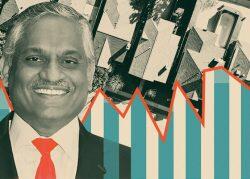A YIMBY-focused citywide land-use ordinance moved one step closer to adoption after a contentious 10-4 vote by the Dallas City Plan Commission last week.
In a pivotal move for Dallas’s urban future, the ForwardDallas 2.0 plan moves to the full city council for consideration, setting the stage for a new era of land use and development, Bisnow reported.
The updated blueprint, which aims to guide the city’s future growth, has ignited passionate debate, reflecting a clash between real estate development goals and preserving single-family neighborhoods.
Advocates argue the plan promotes growth by encouraging high-density housing in single-family neighborhoods. Opponents say it will disrupt communities by allowing duplexes and triplexes in areas zoned single-family.
The city’s approach is part of a broader strategy to tackle Dallas’ affordable housing crisis, which requires approximately 33,600 additional affordable rental homes for lower-income residents, according to buildingcommunityWORKSHOP.
The plan’s focus is on increasing housing density, but it doesn’t directly alter zoning laws; it sets a framework for how land should be used, and specific zoning changes will still need to go through the review process.
Plan commission member Tom Forsyth criticized the decision to move forward without fully addressing residents’ concerns, arguing it risks intensifying opposition when the plan reaches the full city council. He estimates that about 90 percent of single-family homeowners feel targeted by the proposed changes.
“You are enabling the very strong opposition to this plan to continue and to bring that opposition in front of the council,” Forsyth said, KXAS reported. “I will be speaking against this plan when it’s brought before council.”
Commission member Darrell Herbert argued that the city’s zoning practices, which favor single-family homes, are outdated and contribute to higher housing costs and segregation. The plan’s shift towards higher-density housing is essential for fostering diversity and inclusivity in the community, he said.
— Andrew Terrell
Read more



